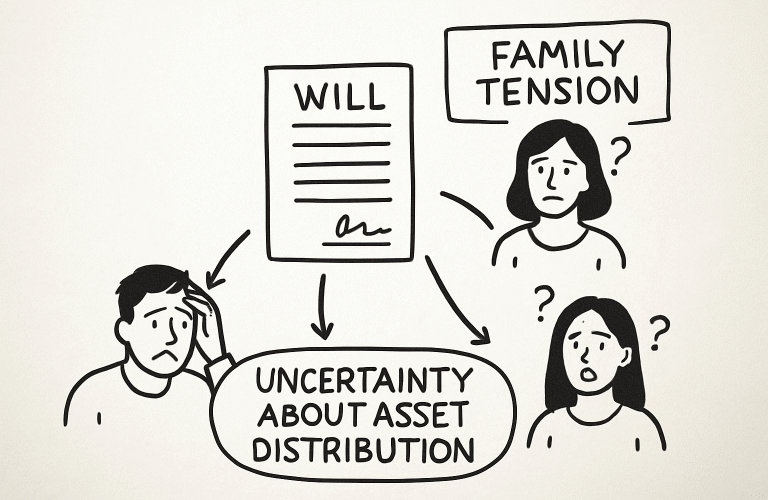Understanding Probate and Its Impact on Families
Probate is the court-supervised procedure for authenticating a deceased person’s will, settling debts, and distributing assets to rightful heirs. While it offers legal structure and oversight, probate can pose significant hurdles for grieving families. Navigating this complex process often brings together relatives under heightened emotional strain, making clear communication and proper planning critical. For those facing probate in Colorado, a knowledgeable Colorado probate attorney can be invaluable in achieving clarity and reducing stress.
Families enter probate hopeful for smooth resolutions, but quickly encounter obstacles if the estate plan is ambiguous or outdated. Probate proceedings may span months or even years, depending on the circumstances. During this period, families must manage legal forms, court deadlines, and, sometimes, painful disagreements, all while coping with loss. These realities underscore the importance of proactive measures, such as regular estate plan reviews and transparent conversations about family intentions.
The emotional weight of probate can deepen when conflicts arise over the interpretation of a will or the distribution of assets. It’s common for family members to have differing expectations or memories about promises made by the deceased, which can fuel misunderstandings that escalate into formal disputes. Additionally, probate is not just a legal journey but an emotional one, requiring consideration for everyone involved.
Beyond the divides created by grief, probate can place a significant financial burden on beneficiaries. Legal fees, court costs, and appraiser fees are deducted from the estate’s value, sometimes leaving less than anticipated for heirs. Planning and familiarizing yourself with the probate process, as well as best practices for estate planning, can make a marked difference.
Common Challenges Families Face During Probate
During the probate process, families encounter a range of challenges that can significantly strain both relationships and finances. A prevalent issue stems from dealing with unclear or outdated wills. When the deceased’s wishes are not clearly articulated or alterations in circumstances have occurred since the last will update, beneficiaries may contest its validity or fairness. Language ambiguities regarding asset inheritance can lead to drawn-out disputes, necessitating court intervention to interpret these documents, a process that is often lengthy and divisive.
Unclear or outdated wills are noted as a primary cause of inheritance conflicts. For instance, wills that fail to mention newly acquired assets or reflect updated family dynamics—such as remarriages or the birth of grandchildren—can cause disagreements among heirs about asset distribution. This ambiguity often results in legal battles that not only consume time but also create rifts within the family unit.
Additionally, probate can amplify existing familial tensions, igniting disputes over sentimental items, perceived inequalities in asset distribution, or the overall fairness of the will. Such conflicts can escalate into protracted legal battles, jeopardizing trust and irrevocably harming relationships.
Aside from relational strains, the probate process also incurs significant financial burdens. Costs related to attorneys, court fees, and other expenses can diminish the estate’s value, subsequently providing less for the beneficiaries. Particularly complex estates, or those with contested wills, may remain in court for extended periods, delaying resolution and potentially reducing the estate’s overall value.
Furthermore, the journey through probate is often tangled with emotional stress and grief. Navigating legal requirements while mourning can be incredibly taxing. The convergence of financial, legal, and emotional hurdles underscores the need for professional guidance and the importance of maintaining open communication channels within the family to navigate these challenging times effectively.
Smart Solutions to Navigate Probate Challenges
Fortunately, several proactive steps can help families avoid common pitfalls during probate. The most effective strategy is establishing a comprehensive estate plan. This involves gathering all important financial information, insurance policies, and legal documents, and clearly stating asset distribution intentions.
- Establish a Comprehensive Estate Plan: Organizing and documenting your wishes early allows for clarity and reduces ambiguity, greatly lessening the risk of future conflicts.
- Utilize Trusts: Trusts, such as revocable living trusts, can allow assets to skip probate entirely, offering privacy and swift transfers to beneficiaries.
- Maintain Open Communication: Regular conversations with family members about your estate plan foster understanding and reduce the likelihood of disputes after your passing.
- Regularly Update Documents: Life changes frequently—marriages, divorces, births, and major asset acquisitions should prompt immediate updates to wills and trusts.
- Seek Professional Guidance: An experienced estate planning attorney can navigate complex laws and tailor strategies specific to your family’s needs, helping avoid mistakes and disputes.
Real-Life Examples of Probate Challenges
Consider a family where the patriarch’s will had not been updated following a second marriage. Disagreements arose among adult children from the first marriage and the new spouse, leading to legal battles that could have been avoided with a more current estate plan. In another instance, siblings clashed over the division of a valuable collection that was not explicitly detailed in the will, resulting in prolonged court proceedings and strained family ties. These stories highlight why clear, updated documents and professional guidance are so vital.
The Role of Professional Guidance in Probate
Having a trusted professional on your side can bring peace of mind. Probate and estate planning attorneys offer more than just document preparation—they also help families anticipate and mitigate issues, keeping the process efficient and fair. Their experience ensures your assets are protected and distributed according to your wishes.
For particularly complex family situations or larger estates, professionals may recommend advanced tools like tax planning, charitable trusts, or specialized trusts for vulnerable beneficiaries. Leveraging professional expertise is crucial for navigating state-specific regulations and minimizing the risk of costly errors.
Conclusion
Probate can be a complex and emotionally taxing process, but families can alleviate the burden through proactive planning, open communication, and the support of legal professionals. By anticipating and addressing common pitfalls, you help protect both family harmony and the value of your legacy. If you’re preparing for probate or want to safeguard your family’s future, the right planning and guidance can make all the difference.




